
Patient Calls This Nurse’s Wig “Unprofessional”, Regrets It When She Takes It Off
It’s a pretty standard rule that we should never judge another person’s appearance. Don’t like someone’s shoes? You don’t have to wear them! You would have done your makeup differently? Great, you can!
So when one nurse who enjoys wearing a variety of wigs to work was called out by a patient, she decided to respond in the most brilliant way. Below, you’ll find the full story that was recently shared on the Malicious Compliance subreddit, as well as conversations with Amy Johnson, Operations Manager at Alopecia UK, and Lady Alopecia herself, Emma Sothern.
One nurse has become known among her colleagues for wearing various fun wigs to work
Image credits: RODNAE Productions (not the actual photo)
But after a patient claimed the hairpieces were “unprofessional”, she decided to show her what the alternative looks like
Image credits: the_lawren94 (not the actual photo)
Image credits: Ancient_Educator_76
Later, the poster responded to some comments and provided additional info
“A diagnosis of alopecia can make you feel like your world has been turned upside down”
Alopecia areata is “a skin condition that causes a sudden loss of patches of hair on the scalp and sometimes other parts of the body,” and about 1 in every 50 people will experience it at some point in their lifetime. To learn more about how having alopecia can impact a person, we reached out to Amy Johnson, Operations Manager at Alopecia UK, who was kind enough to have a chat with us. “A diagnosis of alopecia can make you feel like your world has been turned upside down,” she told Bored Panda. “It can impact relationships, work and social life. Whilst adjusting to living with a visible difference, many can find it difficult to go out in public or even look in a mirror. A loss of hair can mean a loss of confidence and self-esteem. Whilst alopecia is not life-threatening, it is life-changing.”
We also were lucky enough to get in touch with Emma Sothern, or Lady Alopecia, to hear her thoughts on the topic. Emma shared that, while it was tough growing up with alopecia, she has learned to focus on the positives. “It was only when I shaved my head, came clean about my alopecia and set up Lady Alopecia to support other people with hair loss, that I felt like the ‘real me’,” she shared. “It gave me a sense of purpose. Of course, there are days when I wish I had hair. But I know that my bald head sets me apart, it’s something that makes me different – and in a way, that’s pretty special. Plus, I never would’ve met many of the incredible and inspirational people I have in this journey without it! So although alopecia has had a massive impact on my life, I can see the positives it’s brought me. And for that, I’m grateful.”
Image credits: RODNAE Productions (not the actual photo)
“People can wear wigs for many reasons including alopecia, chemo-related hair loss, or simply for fashion reasons”
When it comes to wearing wigs, Amy says that they can go a long way in helping people with alopecia gain confidence. “For those who feel they cannot show their hair loss to others, wigs can be essential to fully participate in society,” she noted. But not everyone chooses to wear one. Emma shared that she wore one for a while in her mid-20s, but over time, she grew a distaste for it. “I hated having to style it, carefully clipping it into place so it’d match up with the sparse hair I already had. I hated getting anxious about every gust of wind, fearing it would blow apart to reveal my patches,” she told Bored Panda. “And I hated feeling like I was hiding my true self.”
Today, Emma opts for turban headscarves, which she actually sells, on days she prefers to cover up. “They’re just more in line with my personal style,” she says. “But there are many alopecians I’ve connected with, through my website and on Instagram, who absolutely rock their wigs!”
It’s important not to judge anyone who does choose to wear a wig, because it might mean a lot to them, and it’s simply not anyone else’s business. “People can wear wigs for many reasons including alopecia, chemo-related hair loss, or simply for fashion reasons because they fancy changing their look,” Amy says. “Regardless of the reason someone is choosing to wear a wig, they should feel able to do that without feeling like somebody is going to pass judgment or comment. We can never know what someone is going through and we should all live by the rule of ‘Just be kind’.”
While alopecia is thankfully becoming more normalized over time, with public figures like Jada Pinkett Smith and Congresswoman Ayanna Pressley openly discussing it, Emma notes that it would still be nice for people to stop viewing it as an “awful sickness or disease,” but just as something lots of people experience at some point in their lives. “Hair falls out – sometimes it grows back, sometimes it doesn’t. And that’s okay,” she shared. “Also, it would be nice just to be able to go about my day without all the stares, comments and questions… Even the well-intentioned ones. But I guess that’ll only happen when more people are exposed to it.”
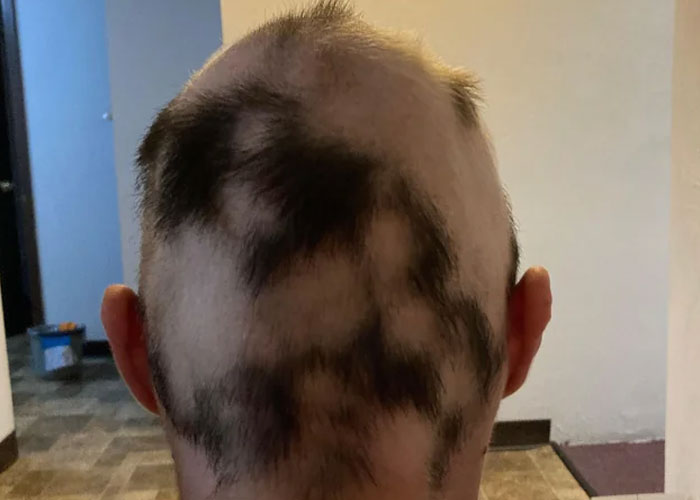
Image credits: Fancy_Tower_2542 (not the actual photo)
“What makes a person beautiful is their confidence, their kindness, how they hold themselves and how they treat others”
Amy also touched on some of the most common misconceptions people hold about alopecia. “Whilst some people can put their hair loss down to a stressful time, there are many people who experience alopecia who cannot link it to stress,” she explained. “There is also a misconception that there is a direct correlation between the severity of hair loss and the severity of psychological impact. This is not the case. Someone who has a few patches of hair loss, or experience hair thinning, can be as emotionally affected as someone with total hair loss. There are many factors that impact how someone will be affected by their alopecia, including personality type, support network and access to products and services.”
“Our hair isn’t our identity. And even though, especially as women, we’re conditioned to believe that long hair equals beauty, that’s just not true,” Emma noted. “What makes a person beautiful is their confidence, their kindness, how they hold themselves and how they treat others. This is the message we should be passing on to our children. So if they see a classmate with bald patches, or no hair at all, they won’t regard them as ‘ugly’ or a ‘freak’. They’ll be able to look beyond that and see the beauty that exists within us all.”
We would love to hear your thoughts on this story in the comments below, pandas. If you have any personal experience with alopecia, feel free to share, and then if you’re interested in checking out another Bored Panda article discussing how alopecia doesn’t stop individuals from embracing their most beautiful selves, look no further than right here!
Amused readers applauded the nurse and shared reminders of why we should never judge one another
There are many reasons why people might wear a wig. In NYC where I am, we have a lot of Orthodox Jewish doctors and nurses and most Orthodox Jewish married women cover their hair, as per religious doctrine, but most use wigs these days (especially Hasidic women). So you will see lots of professionals wearing wigs, even a Judge in New York
I have a hidden illness and it affects me in all sorts of ways like my walking is a shuffle- I'm not old but it's an old lady shuffle. I frequently get told I should walk properly... yeah mate I'd love to but even this is more than I can really handle. People should never make assumptions about what other people are going through
There are many reasons why people might wear a wig. In NYC where I am, we have a lot of Orthodox Jewish doctors and nurses and most Orthodox Jewish married women cover their hair, as per religious doctrine, but most use wigs these days (especially Hasidic women). So you will see lots of professionals wearing wigs, even a Judge in New York
I have a hidden illness and it affects me in all sorts of ways like my walking is a shuffle- I'm not old but it's an old lady shuffle. I frequently get told I should walk properly... yeah mate I'd love to but even this is more than I can really handle. People should never make assumptions about what other people are going through

 Dark Mode
Dark Mode 

 No fees, cancel anytime
No fees, cancel anytime 






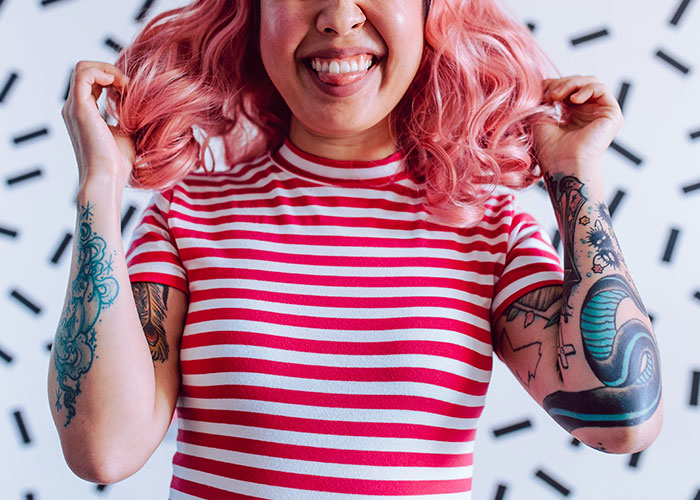
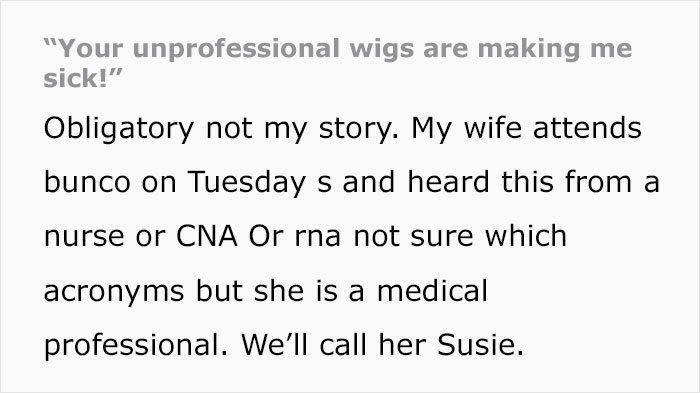
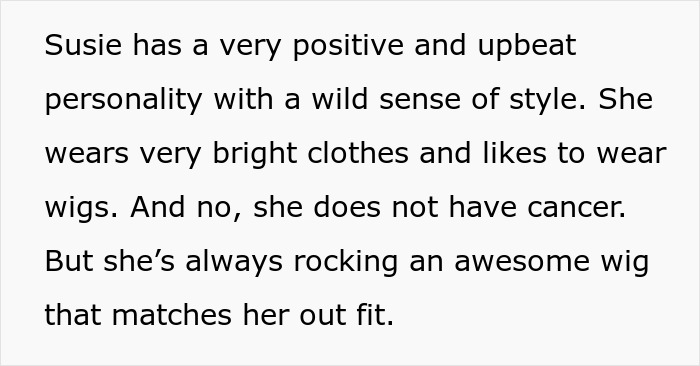
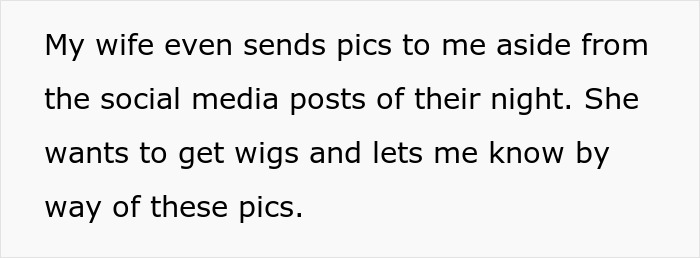
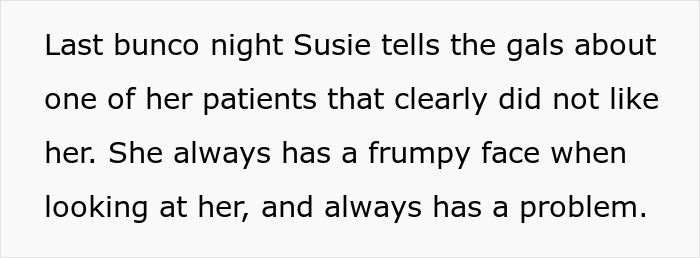

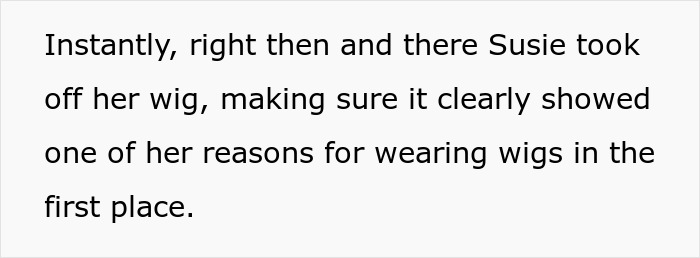
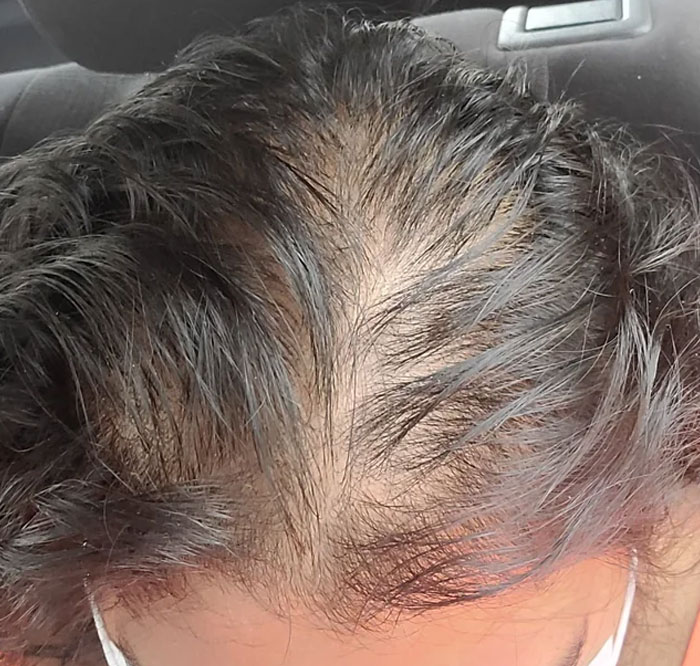
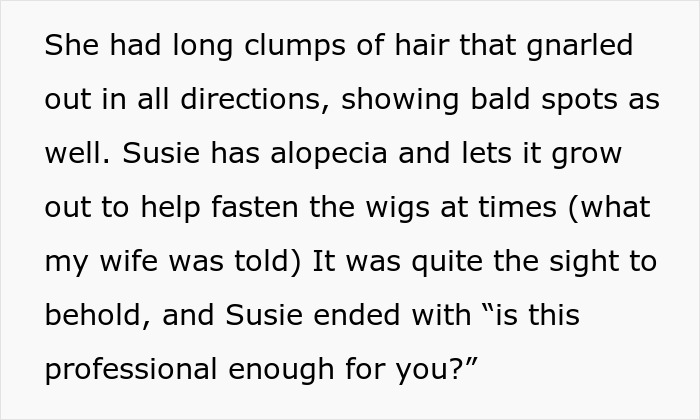
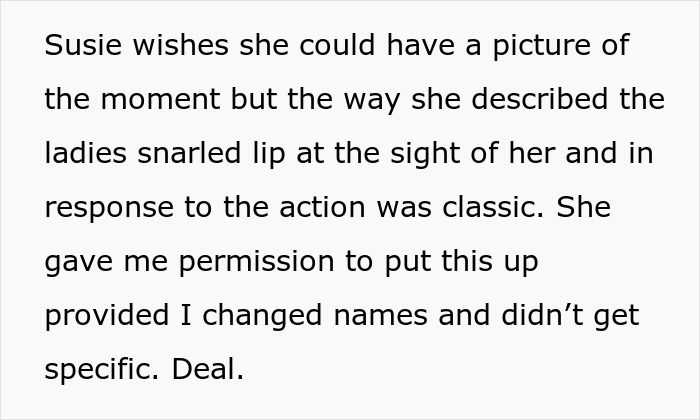

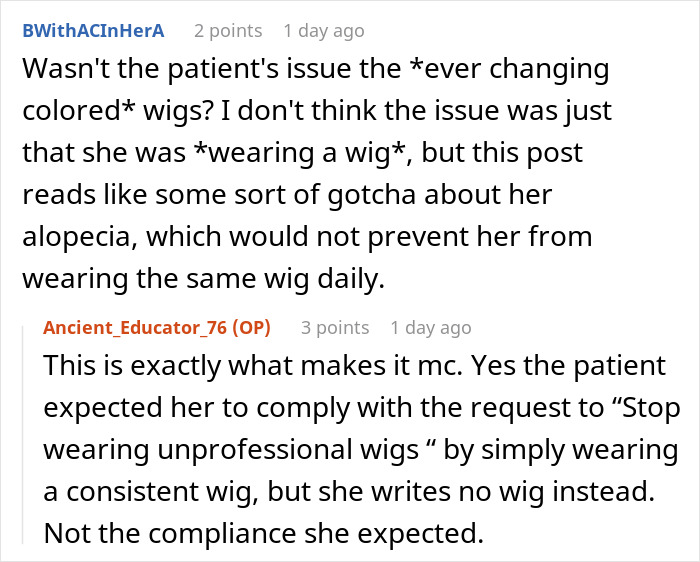
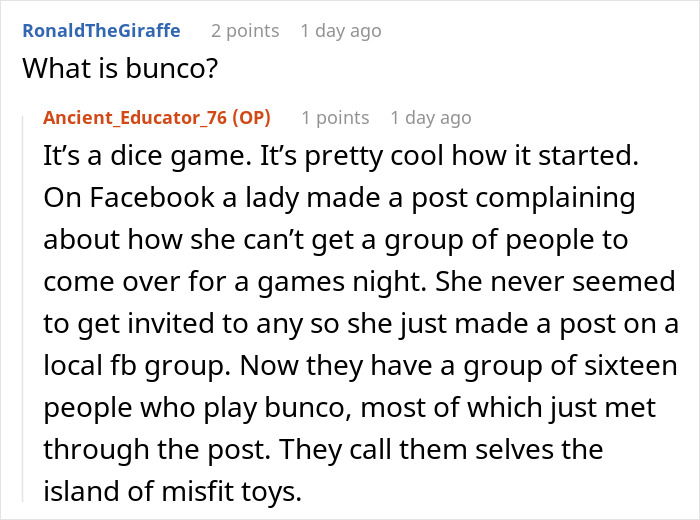
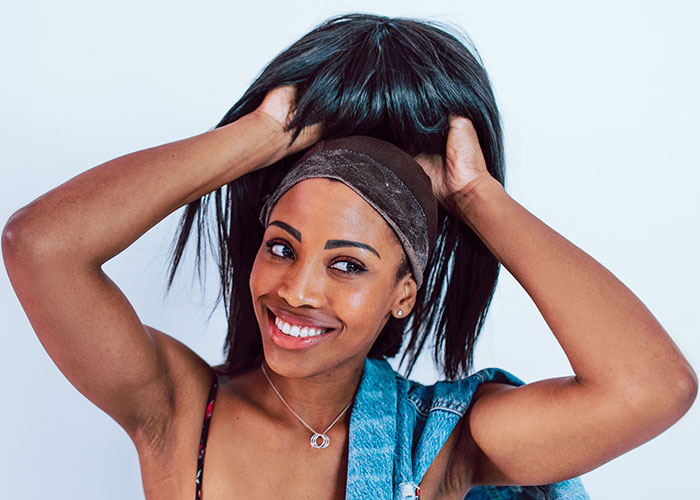




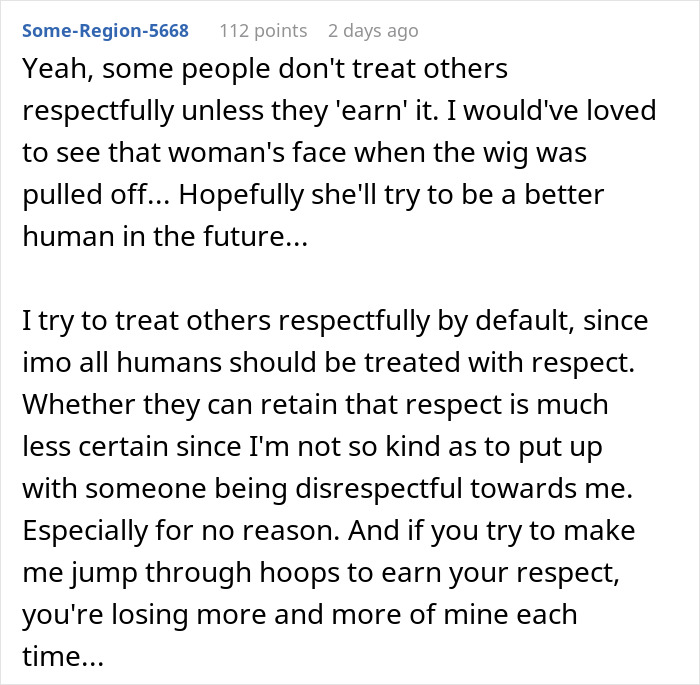



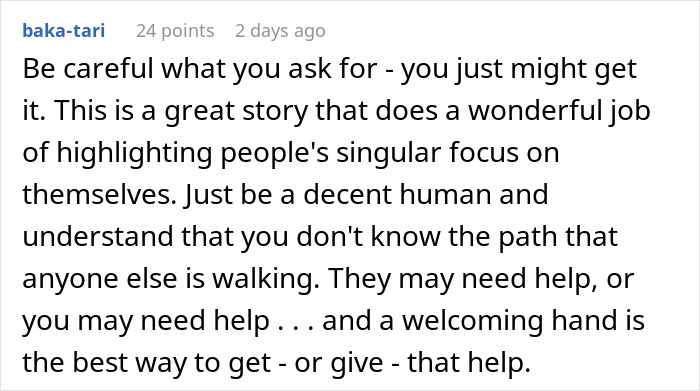









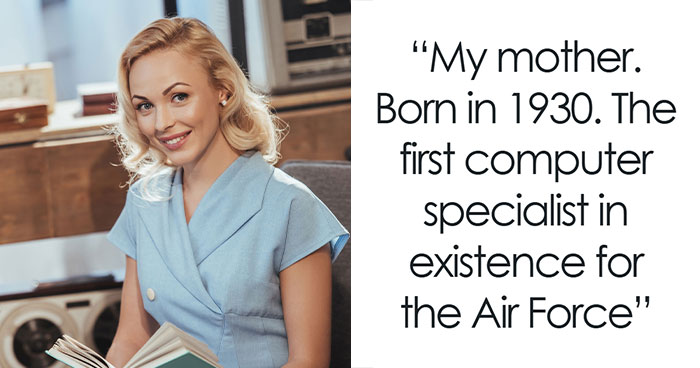

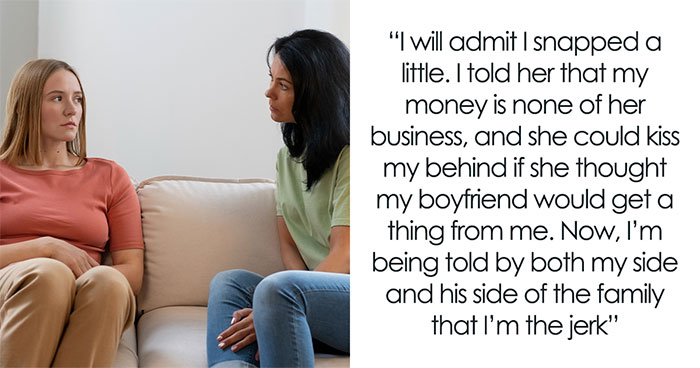
































101
8